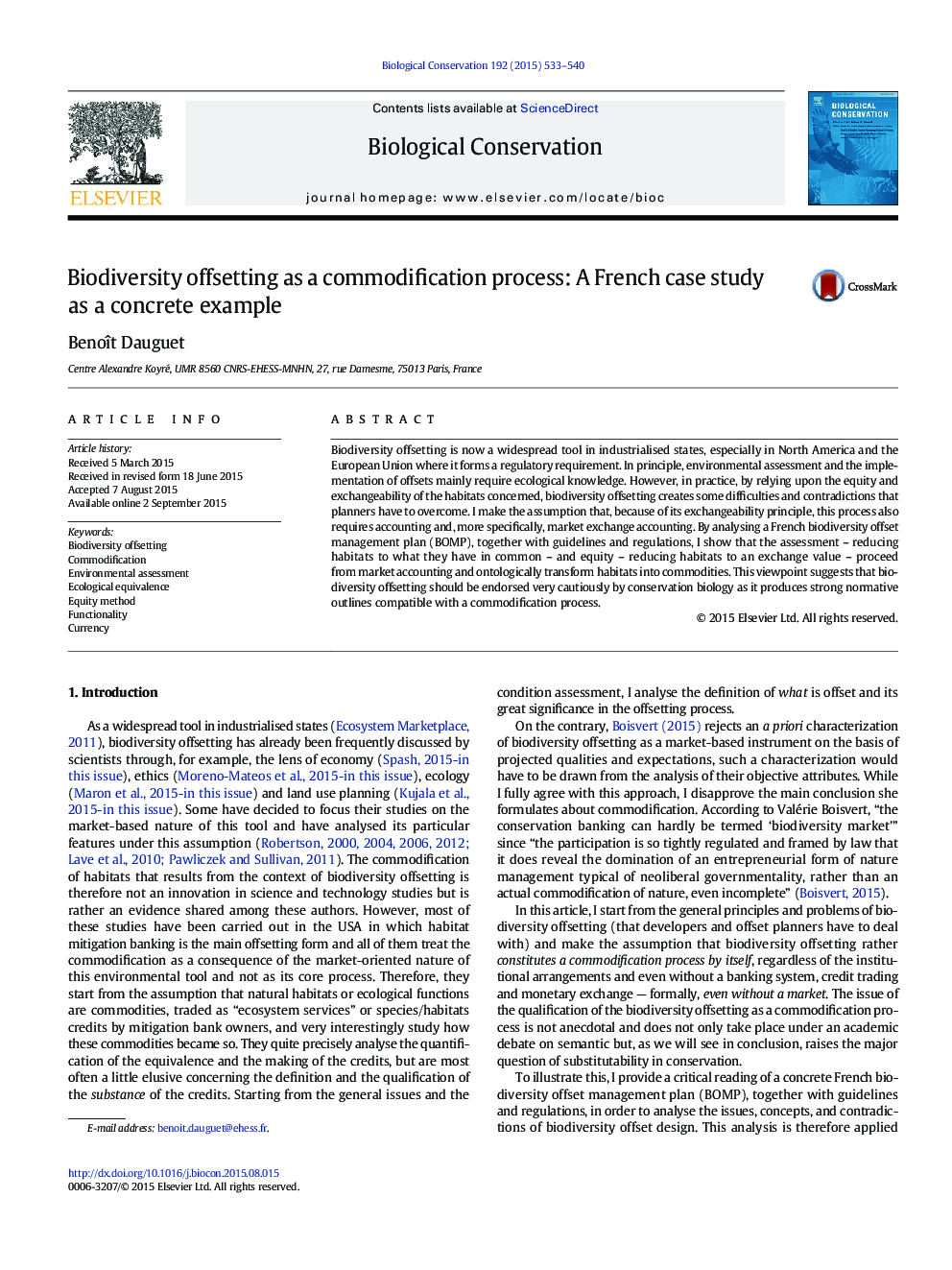| Article ID | Journal | Published Year | Pages | File Type |
|---|---|---|---|---|
| 6298671 | Biological Conservation | 2015 | 8 Pages |
Abstract
Biodiversity offsetting is now a widespread tool in industrialised states, especially in North America and the European Union where it forms a regulatory requirement. In principle, environmental assessment and the implementation of offsets mainly require ecological knowledge. However, in practice, by relying upon the equity and exchangeability of the habitats concerned, biodiversity offsetting creates some difficulties and contradictions that planners have to overcome. I make the assumption that, because of its exchangeability principle, this process also requires accounting and, more specifically, market exchange accounting. By analysing a French biodiversity offset management plan (BOMP), together with guidelines and regulations, I show that the assessment - reducing habitats to what they have in common - and equity - reducing habitats to an exchange value - proceed from market accounting and ontologically transform habitats into commodities. This viewpoint suggests that biodiversity offsetting should be endorsed very cautiously by conservation biology as it produces strong normative outlines compatible with a commodification process.
Keywords
Related Topics
Life Sciences
Agricultural and Biological Sciences
Ecology, Evolution, Behavior and Systematics
Authors
Benoît Dauguet,
